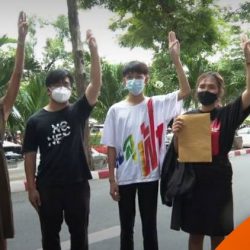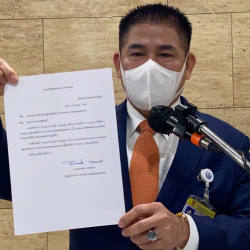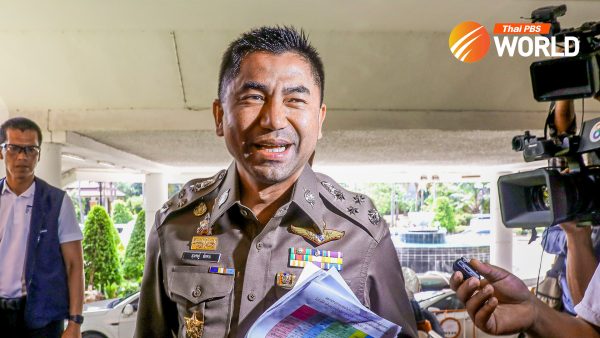COVID-19 lockdown restrictions, zoning maintained until end of September

Thailand’s Centre for COVID-19 Situation Administration (CCSA), chaired by Prime Minister Prayut Chan-o-cha, has decided to maintain the 9pm to 4am curfew, the Executive Decree and all existing lockdown restrictions, including working from home, in the country’s “dark red”, “red” and “yellow” zones, until the end of September.
Contrary to speculation, that further easing of restrictions would be approved as the pandemic situation is showing signs of improvement, CCSA spokesman Dr. Taweesin Visanuyothin told the media today (Friday) that the CCSA made no changes after being shown the latest forecast that daily infections may surge to about 30,000 were restrictions to be further eased.
Instead, he said the CCSA decided to tighten measures, such as such as working from home, travel controls, increased screening with antigen tests and implementation of COVID free settings, to prevent a resurgence of infections.
29 provinces remain in the “dark red” zones, 37 in “red” zones and 11 in “yellow” zones.
Dr. Taweesin said that 10 million doses of AstraZeneca viral vector vaccine, 6 million doses of Sinovac inactivated virus vaccine and 8 million doses of the Pfizer mRNA vaccine will be administered in October alone.
The 24 million doses for next month will be for:
- People over 18 – 16.8 million doses. First jab of Sinovac and second jab of AstraZeneca or two jabs of AstraZeneca or first jab of AstraZeneca and second jab of Pfizer.
- Students aged from 12 to 17 – 4.8 million doses of Pfizer vaccine for both jabs.
- Workers covered by the social security system – 800,000 doses. First jab of Sinovac, second jab of AstraZeneca.
- Employees of state organizations – 1.1 million doses. Mixed vaccination of Sinovac and AstraZeneca.
- Booster shots for those who have had 2 doses of Sinovac – 500,000 doses of AstraZeneca.
13 million doses of AstraZeneca and 10 million doses of the Pfizer vaccine are due in Thailand in November, to be followed by 14 million doses of AstraZeneca and 10 million of Pfizer in December.
This year, there will have been 152.9 million doses of vaccines available in Thailand, including those donated, including 62.9 million doses of AstraZeneca, 31.5 million doses of Sinovac, 31.5 million doses of Pfizer, 25 million doses of Sinopharm and two million doses of the Moderna vaccine.
Dr. Taweesin made clear that vaccination of students, aged 12-18, are voluntary and consent from their parents is required and post-inoculation side effects, such as infection of heart muscles, must be reported to health officials.






